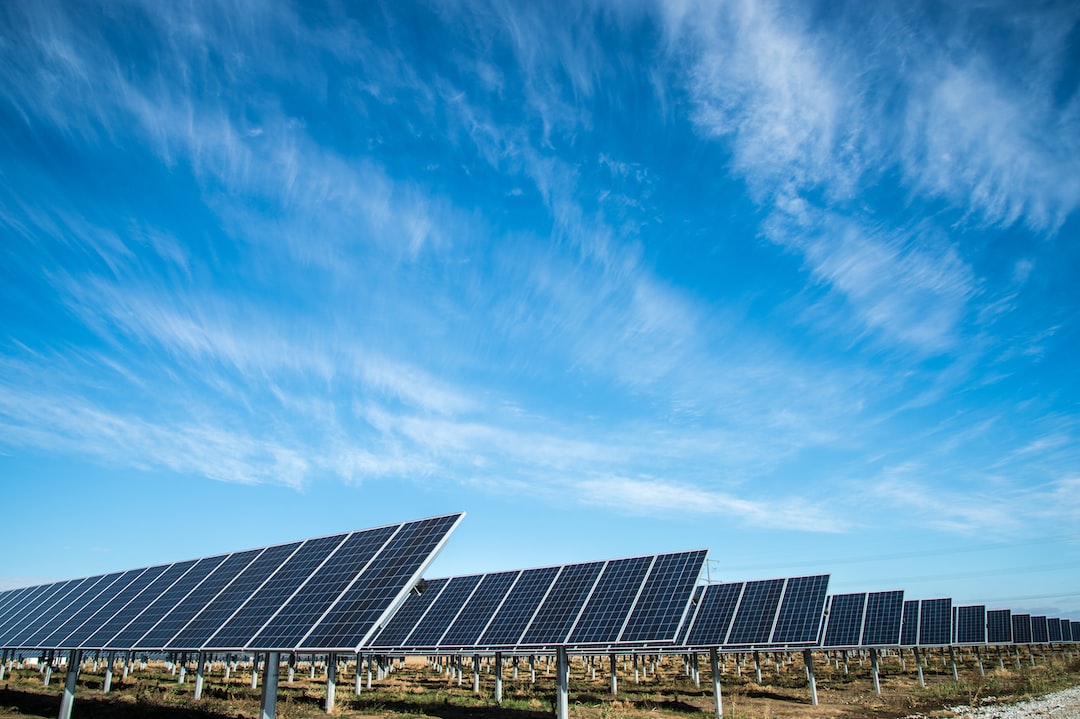
The Future of Energy – Why Solar Panel Installation is a Smart Investment
It’s no secret that fossil fuel extraction and burning are expensive and harmful to the environment. With technological advancements, we’re moving towards a cleaner energy future.
Solar energy is a great solution that allows people to generate electricity and reduce reliance on traditional energy companies. Plus, the cost of solar hardware continues to decrease.
Contents
Reduce Your Carbon Footprint
In a world that relies heavily on price-volatile, insecure and carbon-intensive fossil fuels, switching to solar energy is one of the most effective ways to reduce your environmental footprint. The best solar panel installation helps fight climate change while reducing your dependence on the overworked electricity grid.
Many people are concerned about the impact of solar energy on the environment. The good news is that solar power is a renewable resource, so the environmental impact is minimal compared to other traditional energy sources. Furthermore, solar panels do not produce harmful emissions during operation and have a much lower life-cycle greenhouse gas (GHG) emission rate than coal.
The primary disadvantage of solar panels is the initial cost. Still, numerous financial incentives are available to make them more affordable, and leasing options can help you reduce your upfront costs. In addition, solar energy systems are semi-permanent, so they’re best suited for homeowners rather than renters.
Furthermore, a solar power system’s location on your property can reduce the environmental impact because the energy is produced close to consumption points. This reduces the transmission and distribution losses of a large centralized energy production plant, which can increase efficiency and improve energy security in case of overload or natural or human-caused disasters. This makes a distributed energy system a more robust alternative to fossil fuel-powered power plants and improves the grid’s resilience to blackouts.
Save Money on Your Utility Bills
Solar panels help reduce your energy costs immediately by generating electricity that you use to offset the energy cost from the power company. The savings will also increase as electricity rates rise and your power production grows. This is especially true in states with high electricity prices or in areas where the climate is more suitable for solar.
How much you can save depends on your system’s size, energy usage habits, and location. The more sunlight your area receives, the more electricity your solar panel system will generate. The type of panels you choose will also impact the overall cost and savings, with more efficient equipment often yielding a better return on investment. Additionally, federal and state solar incentives can lower installation costs.
To estimate your potential monthly savings, subtract your total household electric bill from the price of a 6-kW solar system in your region. You can also earn money by selling excess electricity to your local utility company under a feed-in tariff. Additionally, reducing your energy consumption by weatherizing your home and using efficient appliances can help lower your overall electricity needs. This can further increase your savings and the money you can earn from solar.
Increase the Value of Your Home
While many consumers install solar energy systems to reduce their carbon footprints and achieve greater self-sufficiency, they also add value to homes. Solar power is a clean, efficient and affordable source of electricity, which can help homeowners save a significant amount on monthly utility bills. Furthermore, a solar system can be supplemented with a battery system, allowing a home to function entirely off-grid and serve as an emergency backup during power outages.
Additionally, a solar energy system can significantly increase a home’s value, especially when homeowners choose to sell their property. According to one study, a house with a solar energy system sells for about 4.1% more than comparable homes without solar panels. This can amount to an additional $9,274 for the median-valued home in the United States.
Multiple studies have shown that a home with a solar energy system has higher resale values than comparable homes. For example, a National Renewable Energy Laboratory study found that a home’s value increases by $20 for every dollar saved on electric bills.
Another study, this time by Lawrence Berkeley National Laboratory (LBNL), analyzed sales of solar-powered homes across eight states and found that buyers were willing to pay a premium of about $4 per watt of installed PV capacity. This equates to a 4% premium for a home with a 6 kilowatt (kW) solar PV system.
Increase Property Value
Homeowners always look for ways to improve their homes, but only some realize that installing solar panels can increase their property value. This type of clean energy system is becoming increasingly popular, and buyers are willing to pay a premium for homes with solar panels.
Several studies have confirmed that homes with solar power sell faster and at higher prices than comparable properties without. This is because homeowners, potential buyers and appraisers recognize that a solar energy system will save money on utility bills. This, in turn, can reduce a home’s carbon footprint and avoid future utility rate increases.
Another important factor that helps drive a home’s resale value is that solar energy systems are environmentally friendly. Unlike fossil fuels, which produce air and water pollution, solar energy is clean and does not strain the world’s limited resources.
Finally, many states offer tax incentives, including property tax exemptions, to encourage solar energy adoption. However, if you install a solar energy system and lease it instead of owning it, your home’s value will stay the same because the leasing company owns the equipment and can remove the panels anytime. This is why owning your solar energy system is the best option for increasing your home’s resale value.


